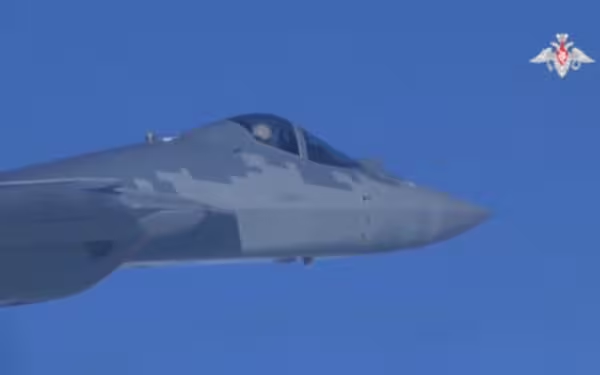Saturday, November 16, 2024 05:53 PM
Pope Francis Criticizes Global Powers Over Middle East Violence
- Pope condemns international community's inaction on violence.
- Calls for dialogue and peace amid ongoing conflict.
- Global day of prayer declared for peace in the region.
 Image Credits: arabnewspk
Image Credits: arabnewspkPope Francis criticizes global powers for failing to address escalating violence in the Middle East, calling for dialogue and a global day of prayer.
In a world where conflicts seem to arise with alarming frequency, the situation in the Middle East remains particularly dire. The ongoing violence, especially following the tragic events of October 7, 2022, when Hamas launched a deadly attack on Israel, has left many questioning the effectiveness of global powers in resolving such crises. As the first anniversary of this attack approaches, Pope Francis has taken a strong stance, criticizing the international community for its "shameful inability" to bring about peace in the region.
In an open letter addressed to Catholics in the Middle East, the Pope expressed his deep concern over the escalating violence and the suffering it has caused. He stated, "A year ago, the fuse of hatred was lit; it did not sputter, but exploded in a spiral of violence, in the shameful inability of the international community and the most powerful countries to silence the weapons and put an end to the tragedy of war." This poignant statement highlights the frustration felt by many regarding the lack of effective action from those in power.
The Pope's message is not just a call for peace; it is a heartfelt plea for dialogue and understanding. He noted, "Blood is still being shed, as are tears. Anger is growing, along with the desire for revenge, while it seems that few people care about what is most needed and what is most desired: dialogue and peace." These words resonate deeply, reminding us that amidst the chaos, the human cost of war is often overlooked.
On this significant day, Pope Francis declared a global day for prayer and fasting for peace, echoing similar initiatives he has led in the past for other conflicts. His commitment to solidarity with those suffering in the region is evident as he refers to them as "a small, defenseless flock" on what he describes as "this sad day." This sentiment extends beyond just Catholics; he reaches out to all individuals affected by the violence, stating, "I am close to you, I am with you."
Moreover, the Pope's message serves as a reminder that the voices of the suffering must not be drowned out by the noise of political agendas. He emphasizes, "I am with you, who have no voice, for despite all the talk of plans and strategies, there is little concern for those who suffer the devastation of war, which the powerful impose on others; yet they will be subject to the inflexible judgment of God." This powerful statement calls for accountability and compassion in a world that often prioritizes power over people.
As we reflect on the Pope's words, it becomes clear that the path to peace is not just about ending violence but also about fostering understanding and dialogue among all parties involved. The ongoing conflict in the Middle East is a complex issue that requires the commitment of not only world leaders but also individuals who believe in the power of peace. In a time when anger and revenge seem to dominate, let us remember the importance of compassion and the need for a collective effort to heal the wounds of war.













